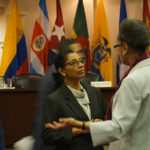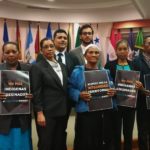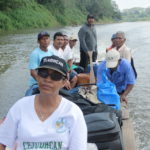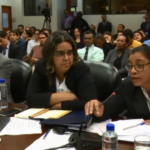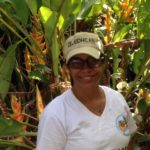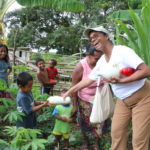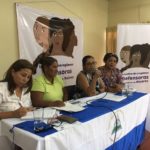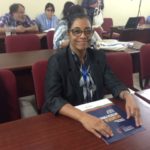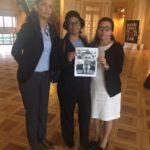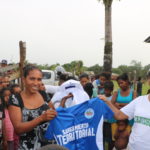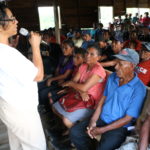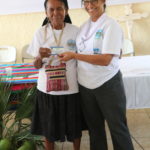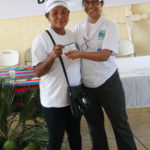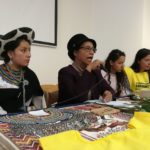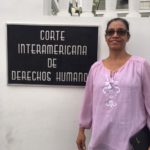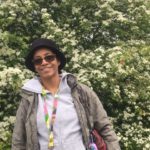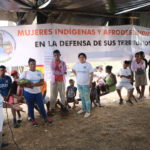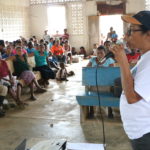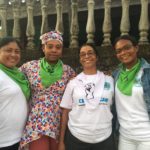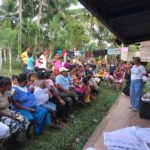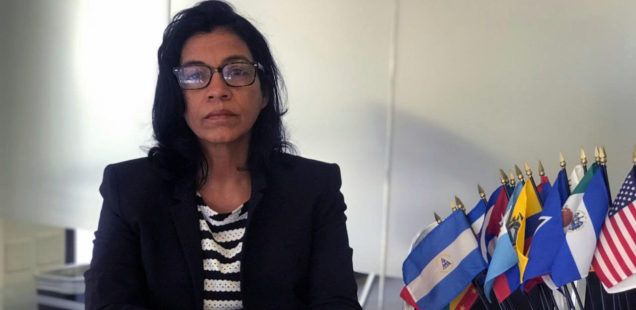
Lottie Cunningham Wren: fostering mutual solidarity and human rights law to defend the life, culture and nature of the Miskito people of Nicaragua.
For thirty years, Miskitu lawyer Lottie Cunningham Wren has worked in the domestic and international arena to secure land rights for the indigenous peoples living along the Caribbean Coast of Nicaragua. She is an exemplarily committed individual, whose professional capacities and human qualities and values merged to generate a commitment that is unique, and uniquely resilient. Making community solidarity possible is a signature of her life’s work.
In 1997 Lottie co-founded the Center for Justice and Human Rights of the Atlantic Coast of Nicaragua (CEJUDHCAN), which assists indigenous Nicaraguan communities to establish autonomous governance over communal lands. Today, CEJUDHCAN is the legal representative of 197 communal governments and nine territorial governments. Its programs have helped indigenous leaders to strengthen their capacities and to understand and adopt the legal framework that supports the territorial rights of indigenous peoples and peoples of African descent in Nicaragua.
Lottie has trained Indigenous communities around the world to use her innovative strategy of human rights law to advance cultural and ecological rights. She is documenting and challenging the violent land grab in the autonomous region of Atlantic Nicaragua, where the Nicaraguan government has encouraged non-native settlers to move into indigenous territories. The land grab is forcing Miskitu villages to abandon their ancestral farmlands and flee for safety. The villages lose access to their farms, and the communities suffer from hunger. Approximately 40,000 villagers cannot safely access some or all of their farmland, as armed men have set up encampments in Miskitu farms while they illegally deforest precious tropical hardwoods and run cattle for export to the USA. Murders, beatings, rapes, and kidnappings of indigenous people bring fear to every moment of Miskitu life. Villagers wait in terror of pre-dawn attacks on their homes, as it happened to the villages of Polo Paiwas and Esperanza Rio Wawa.
CEJUDHCAN has documented and reported to the IACHR hundreds of human rights violations by these armed invaders upon indigenous people in their autonomous lands. Along the Atlantic Coast of Nicaragua, more than 15,000 people have fled villages that were attacked by invaders and are refugees in other villages. On the front lines of this dispute, Lottie is known throughout Nicaragua as an indigenous human rights defender. Despite death threats, despite the fact that the forces behind the indigenous land grab are among the most powerful and wealthy in Nicaragua, Lottie has persevered and secured IACHR protective measures for more than 20,000 Miskitu people in the most threatened territories.
Lottie’s strategy builds upon the core value of indigenous communities: mutual solidarity. Only by being united the indigenous communities can face the current threat to their survival… and Lottie has understood that by encouraging the establishment of village-based ‘human rights rapid response teams’. Teams comprised of seven people in twelve villages have been prepared by their community with a legal strategy and clear community demands. At a moment’s notice, the rapid response teams are empowered to advocate for the needs of the community in the local, regional, and international arena. And multi-territorial teams have strengthened the leadership of the villages, disempowering the criminalization, intimidation and disinformation campaigns promoted and used by the government.
Lottie has also developed a team of international partners to support the villages ‘under protective measures’ to find solutions to daily struggles while they endure the slow march of justice through international courts. This has increased access to safe food production for more than 20,000 villagers. Lottie and her team of human rights lawyers act as legal defenders… but also support community projects to improve food and water security, support nature conservation, sustainable economies, women’s reproductive rights and gender equality, and prevent domestic violence. CEJUDHCAN also works to include women in decision-making bodies. Lottie’s commitment to justice and human rights extends beyond the Atlantic Coast as she has been instrumental in organizing communities resisting the proposed Nicaraguan Trans-Pacific Canal throughout its expected course. CEJUDHCAN operates on minimal financial support and state representatives obstruct funding for the indigenous resistance efforts and Lottie’s legal work. But Lottie persists.
Download : Nicaragua Failed Revolution (PDF in english which offers an amazing account of the work of Lottie’s organisation).

